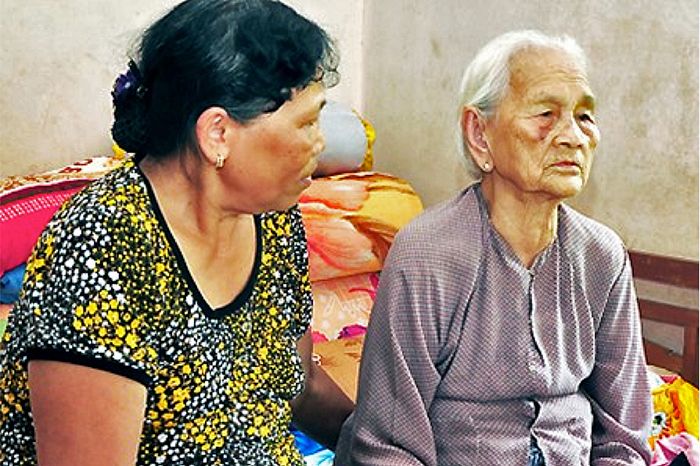Alongside 15 others, Nguyen Thi Hiep (second from the left) received an award and was recognized as a young talent for her research on biomedical technology.
Hiep was recognized last month as an emerging talent in the East Asia-Pacific region by UNESCO-L'oreal's "For Women in Science" (FWIS) program, Tuoi Tre reports. The initiative aims to highlight the achievements of younger women in scientific research and development (R&D).
"I was really surprised and proud, the honor is globally highly selective. I rejoiced to see Vietnam appear in the ceremony," Hiep told the newspaper.
Hiep is a member of the biomedical engineering faculty at Saigon's International University, part of Vietnam National University and was acknowledged for a project launched in 2013 called "A 21st-century first-aid kit," according to UNESCO's press office.
Her ambitious proposal last year succeeded in securing US$20,000 through the annual ASEAN-US Science Prize for Women.
"My current work focuses on biomaterials such as bio-glue, bio-tape and needle-less suturing for wound repair that can be used by patients at home," she told reporters at the ceremony.
The ongoing research involves the development of a smart gel by cross-linking hyaluronic acid, which aids cell proliferation in the human body, and chitosan, a material useful for tissue regeneration. It is capable of delivering microscopic ingredients like nanoparticles for a variety of applications, Tuoi Tre reports.
Her team's goal is to refine the material so it can stop bleeding by absorbing liquids from wounds while erecting a barrier against invading microorganisms. The product aims to be so simple that it can be used in the comfort of one's home. So far, the first-aid gel has performed well in tests using animals such as pigs.
Despite significant progress in her project, bringing the substance to clinical trials remains a challenge. This is a notoriously expensive yet crucial step in eventually making the product available for public use. However, Hiep told the newspaper that she is determined to make the first-aid-kit commercially available. To that end, she has launched a start-up to develop similar biomaterials.
"My research goal is to study and bring new technologies from developed countries back to Vietnam," she said, "While also launching biomaterials and medicines originating in Vietnam on world markets."
[Photo via Flickr user L'Oréal Corporate Foundation]














